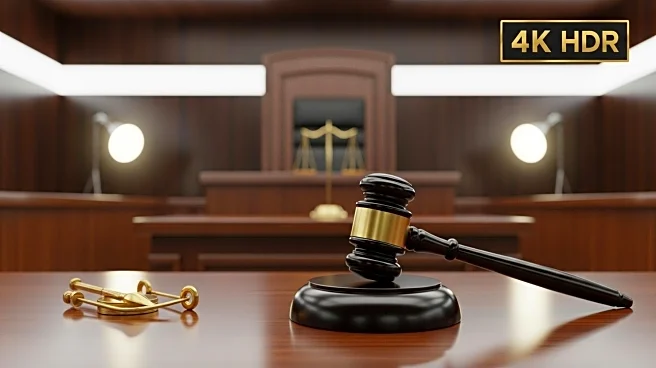What's Happening?
The Kardashian-Jenner family has filed a defamation lawsuit against R&B singer Ray J, following his claims during a September 24 livestream that the family was under federal RICO investigation. The lawsuit, filed in Los Angeles Superior Court, alleges that Ray J's statements have caused significant reputational and business harm to the family, whose combined net worth exceeds $2 billion. The legal action seeks to convert viral social media claims into formal allegations, potentially impacting brands associated with the family. The lawsuit highlights the influence of social media on public perception and the legal ramifications of online statements.
Why It's Important?
This lawsuit underscores the growing intersection between social media influence and legal accountability. As public figures increasingly face scrutiny over online statements, the case could set a precedent for how viral claims are treated in court. Brands associated with the Kardashian-Jenner family may face reputational risks, affecting advertising and partnership deals. The legal proceedings could redefine negotiation leverage for celebrity endorsements, as companies may reconsider their associations based on potential legal exposure. The outcome of this case could influence how influencers and brands manage their public narratives and contractual obligations.
What's Next?
The lawsuit is expected to proceed through the legal system, with potential implications for Ray J and the Kardashian-Jenner family's business dealings. Advertisers and partners will likely monitor the case closely, assessing the impact on brand reputation and financial agreements. The court's decision could influence future defamation cases involving social media claims, prompting legal and contractual adjustments for public figures. As the case unfolds, stakeholders will evaluate the balance between free speech and reputational harm, potentially leading to new standards for online conduct and accountability.
Beyond the Headlines
The case raises questions about the role of social media platforms in legal disputes, as viral posts become central to defamation claims. The lawsuit may prompt discussions on the ethical responsibilities of influencers and the legal boundaries of online speech. As courts consider the impact of social media reach on reputational damage, the case could lead to broader implications for digital communication and privacy rights. The evolving legal landscape may require influencers and brands to navigate complex issues of liability and public perception in the digital age.









